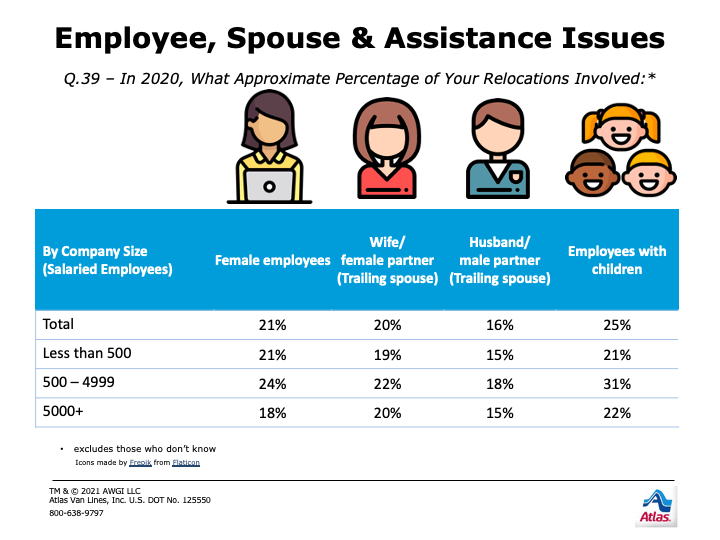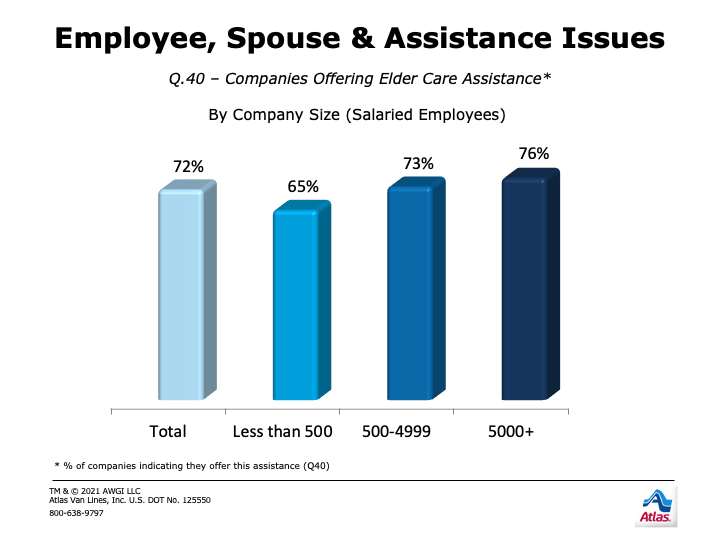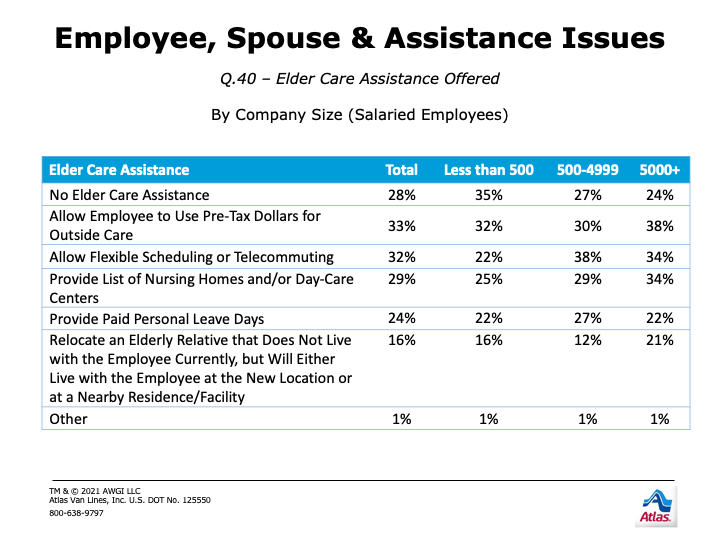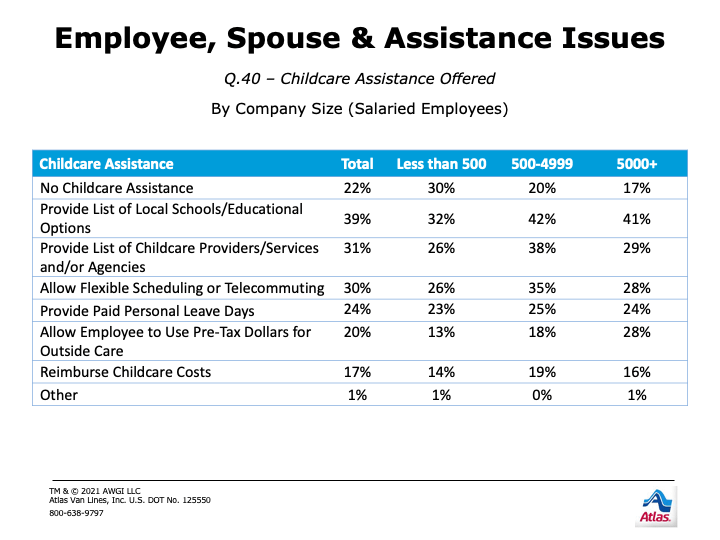SPOUSE/PARTNER & FAMILY ASSISTANCE
The challenge of dual-income households with family commitments remains a key issue. For the past six years, 6 out of 10 firms stated spousal/partner employment “almost always” or “frequently” affected relocations.
In 2021, this rose to two out of three firms (68%), the highest level ever recorded. We see continued efforts to manage this impact with the highest historical levels of employment assistance for spouses/partners being offered, overall and internationally, for a second straight year.
- The impact of spouse/partner employment sees large firms most affected in 2021 compared to midsize and small firms (80% vs. 64% & 60%), reaching the highest level ever seen historically.
- An increase of 20%+ percentage points since 2013 remains in effect for midsize firms (64% vs. 43%) after hitting 54% in 2014 and running 63%-68% during 2015-2020.
- This impact for small firms remains lower than 2017 & 2019 (60% vs. 64% & 68%), similar to 2018 & 2020 (54% & 58%) and at a recent historically normative level overall.
With the impact of spouse/partner employment well above prior historical averages for the past seven years, we see a corresponding rise in employment assistance. During this period, firms of all sizes offered assistance far more often than in previous years, with the most dramatic increases occurring this year among small and large firms compared to 2020.
- Among small firms, the most popular forms of help are providing interviewing skills training and networking assistance, offered by a third. Nearly a third also offer resume preparation assistance (31%) or reimbursement for career transition expenses (30%). Reimbursement of career change expenses has increased to the highest level historically among small firms.
- The most popular forms of assistance among large firms are interviewing skills training (39%), resume preparation assistance (38%), and paying for outplacement/career services (38%). Large firms are more likely to pay for outplacement/career services for relocating spouses/partners than small firms.
- At midsize firms, networking assistance (43%) and interviewing skills training (41%) are the top offerings. Roughly a third pay for outplacement/career services (34%), resume preparation assistance (30%), or to find employment outside the company (30%).
- Both midsize and small firms are more likely to help a spouse/partner find employment outside the company (30% & 27%) than large firms (18%).
Across firms of all sizes, around one in four employees with a spouse/partner used employment assistance.
In the past, far fewer small firms offered employment assistance. Among the subset of small firms that offered such benefits, higher percentages of employees took advantage of them than at larger firms. As far more firms across all sizes have added these benefits over the past seven years, usage has become comparable overall across firms of all sizes.
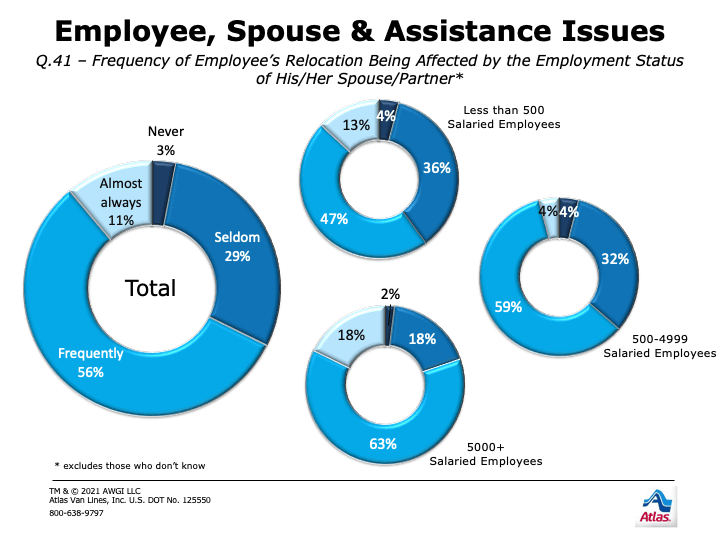
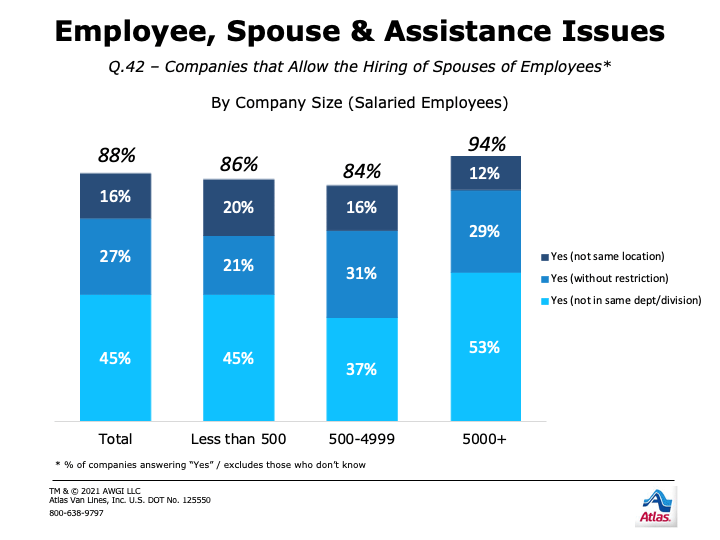
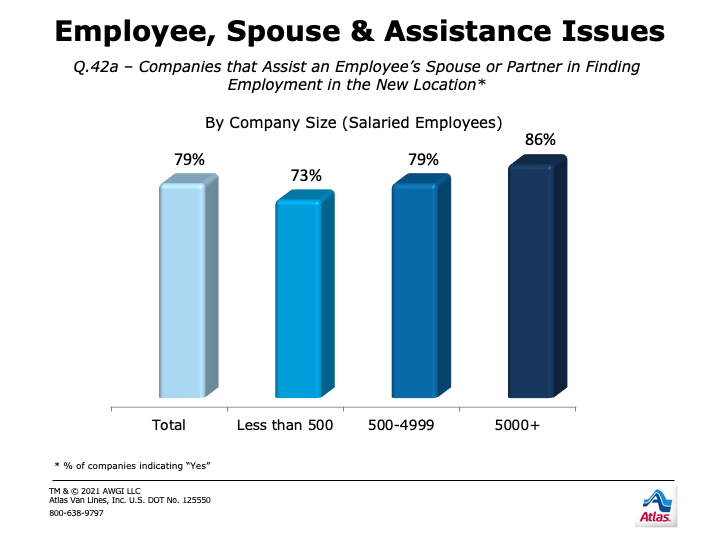
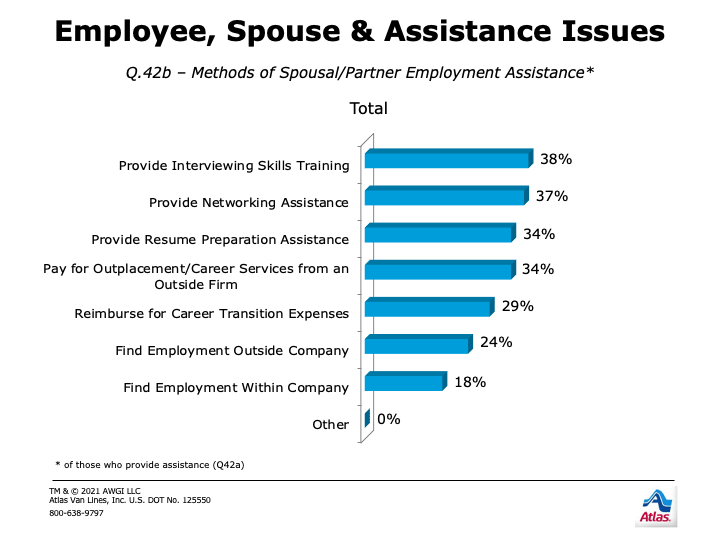
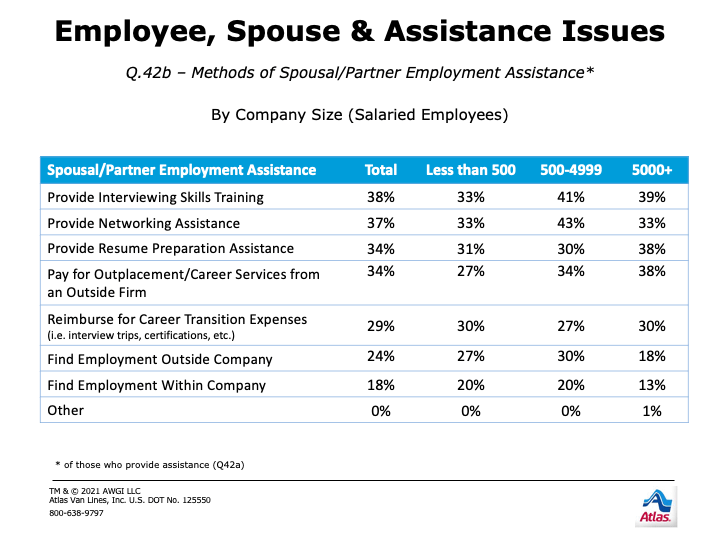
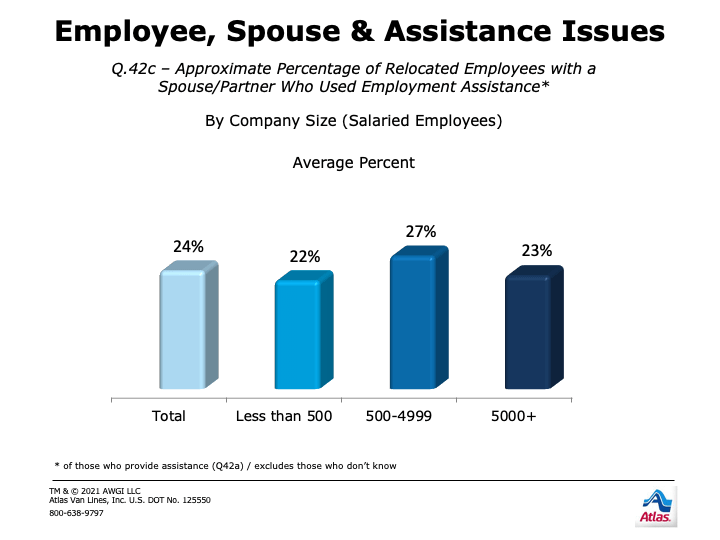
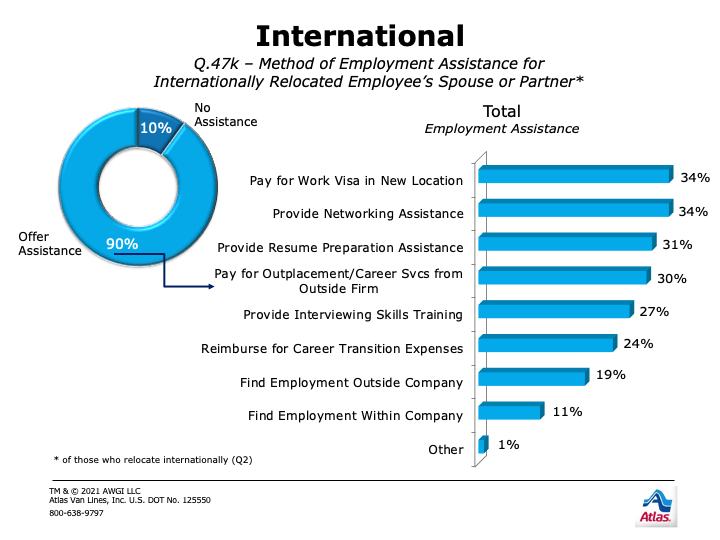
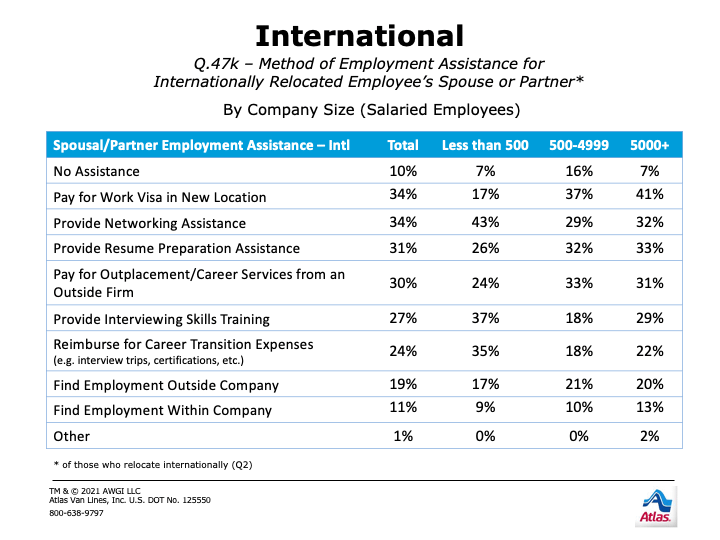
CAREGIVING ASSISTANCE
One out of four relocations involved an employee with children in 2020. 85% of companies estimate the most frequently relocated, salaried employee is 30-45 years of age. Both older millennials and the youngest members of Generation X find themselves in this range. Many who are raising children and have elderly parents for whom they are shifting into a caretaking role. Many experience this "sandwich" of dual caregiving challenges, and relocation policies have had to adapt.
- 78% of firms offer childcare assistance for relocating employees—increasing again over last year’s largest percentage measured for this accommodation.
- 72% offer accommodations for elder care—also increasing for another year to the highest percentage ever seen.
Assistance types vary—such as using pre-tax dollars for outside care, flexible scheduling or telecommuting, as well as providing lists of service providers/options or of local schools/organizations. Overall, it appears the majority of firms are trying to ensure that employees who relocate get the support they need to transition successfully while managing family obligations.
